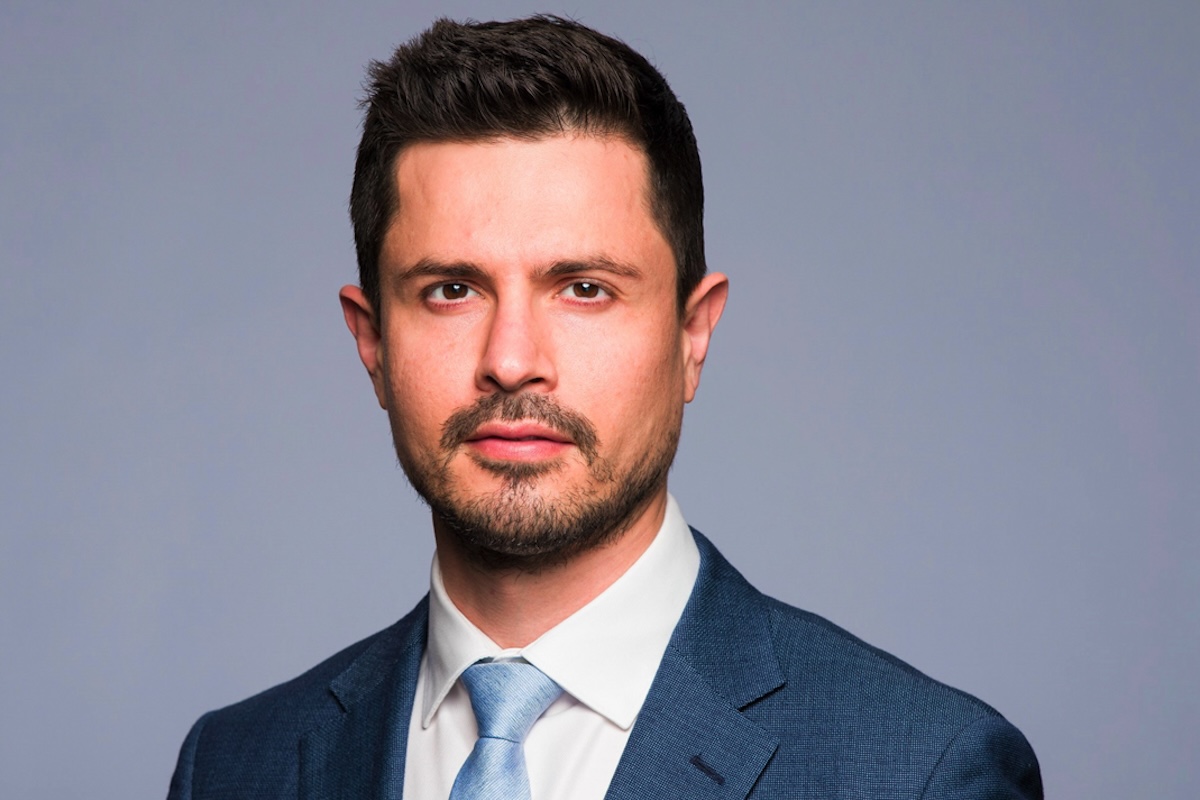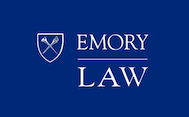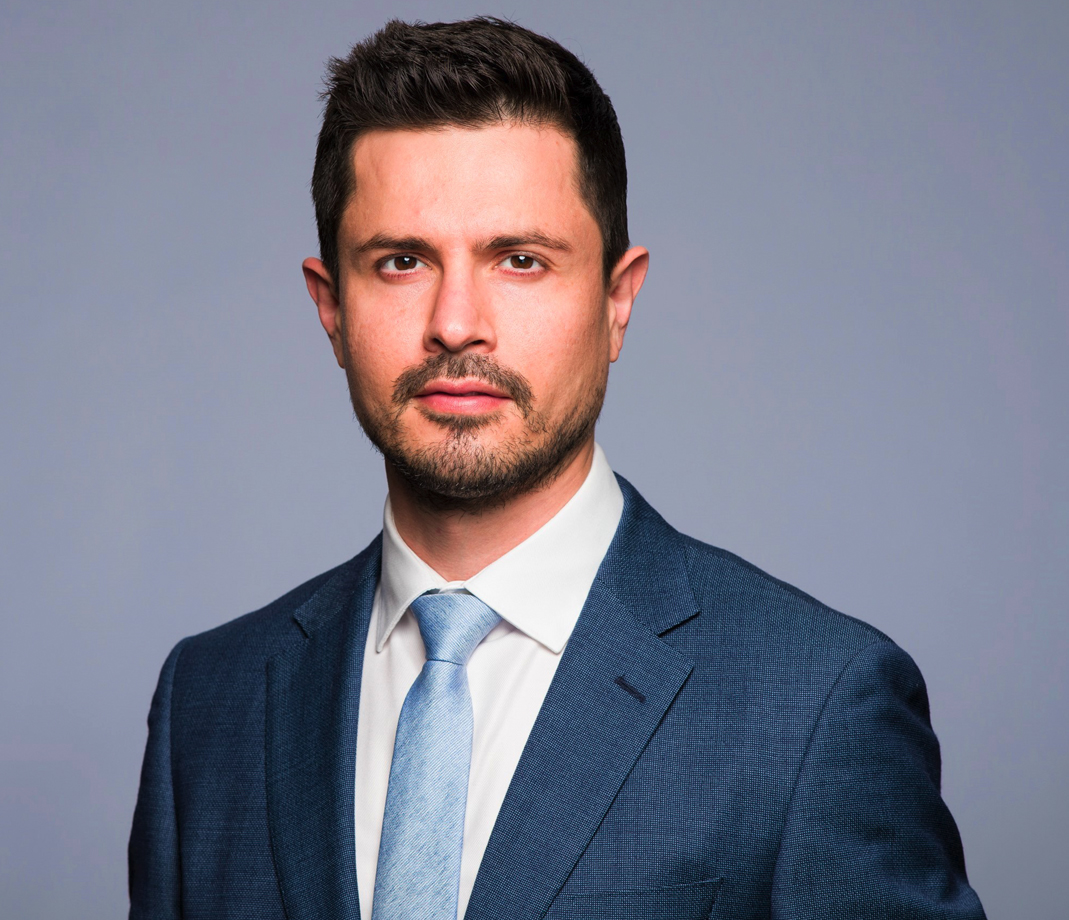
George S. Georgiev: News Releases and In the News


Georgiev: How changing tariffs are creating a dealmaking freeze

Georgiev appointed to SEC Investor Advisory Committee

Georgiev: Workplace issues are becoming a board-level concern

Georgiev testifies before Senate Climate Change Task Force

Georgiev comments on Exxon shareholders' climate protest

Georgiev: Shift to carbon neutral economy akin to industrial revolution

Georgiev: No court has invalidated an SEC rule for exceeding disclosure authority

Georgiev testifies at US House committee in support of SEC climate disclosure rule

Georgiev: All federal agencies, not just EPA and NOAA, have to make allowances for climate change

Georgiev: Due to existing laws, compliance with SEC’s climate disclosure will have few additional costs

Watch video of Georgiev's testimony at House Committee hearing

Georgiev rebuts GOP stance that SEC climate rule exceeds agency authority

Georgiev: SEC haș authority to implement climate disclosure rule

Georgiev: Proposed SEC climate disclosure rule will better inform investors

Georgiev testifies in House clash over SEC climate rule

Georgiev: Beware of greenwashing in company climate disclosures

Georgiev: Asset managers don't focus on executive pay

Georgiev comments on SEC cyberattack disclosure rule

Georgiev: US bosses enjoyed big pay rises in 2022 despite falling stock market

Georgiev: New SEC rule gauges CEO pay vs. performance

Ford Foundation funds Georgiev’s ongoing research on workforce issues in corporate law
Emory Law Associate Professor George S. Georgiev is among a select group of researchers who recently received funding from the Ford Foundation, as part of a far-reaching project on how some of the biggest companies in the United States manage and compensate their employees.

Georgiev comments on climate risk as Puerto Rico rebuillds grid

Georgiev: Companies wary of climate litigation risk

Georgiev comments on JP Morgan clawback attempt

SEC commissioner cites Georgiev research on public-private markets

Georgiev on Tesla's shareholder lawsuit trial regarding Musk's compensation package

Georgiev: Regulators should finally require some transparency of large private firms

Georgiev discusses research in human capital management in US corporate law

Green group cites Georgiev’s support of proposed SEC climate disclosure rule

Georgiev: Recent Supreme Court decision has little effect on SEC climate disclosure proposal

Georgiev in The Guardian: SEC climate disclosure rule is central to capital markets

Georgiev: SEC climate proposal doesn't implicate major questions doctrine

Georgiev: Proposed SEC climate rule doesn't violate 1st Amendment

Georgiev’s research on materiality discussed at SEC Investor Advisory Committee Meeting

Georgiev's research featured on Harvard Law School Forum on Corporate Governance

Georgiev on the Voices of Corporate Governance podcast

Georgiev on the public-private divide

Georgiev's research cited in SEC commissioner's speech

Georgiev: SEC's proposed climate disclosure has social, financial relevance

Georgiev critiques critics of SEC's climate disclosure proposal

Georgiev on the SEC's proposed climate disclosure rule, materiality

Georgiev discusses public-private divide in securities law

Georgiev: SEC may follow Europe, require more disclosures from private companies

Georgiev: Requiring human capital metrics could improve workplaces

Georgiev: Pay-ratio rule compares ‘apples and avocados’

Georgiev’s CEO pay ratio scholarship cited in South Africa

Georgiev: SEC likely to push companies for more workforce disclosures

Georgiev quoted on executive pay at car start-up

Georgiev authors comment letter to the SEC on ESG disclosure

Georgiev: The Human Capital Management Movement in U.S. Corporate Law

Disney CEO salary fall-out highlights controversial Dodd-Frank pay ratio provision
Abigail Disney has called out the Walt Disney Co. for paying its CEO Bob Iger an "insane" $65.6 million, more than 1,424 times the median salary of a Disney employee. "A CEO-to-median pay ratio of 1,424 to 1 is certainly shocking--but such numbers are a shiny decoy," Assistant Professor George S. Georgiev writes for the Los Angeles Times. The op-ed discusses a controversial provision of the 2010 Dodd-Frank Act that requires publicly traded companies to report median employee pay and calculate the CEO pay ratio.

Georgiev in Financial Times: Revised settlement between SEC and Elon Musk 'more watertight'
Elon Musk has agreed to new social media restrictions in a deal with the Securities and Exchange Commission that provides clarity on what the Tesla chief can tweet without prior approval of a lawyer. "The new deal marks the SEC's second attempt at crafting communications rules to check Mr. Musk," who eschews the cautious social media approach employed by most CEOs, the Financial Times reports. The new terms are "much more watertight," Emory Law Assistant Professor George Georgiev said. "The original deal that they struck wasn't very workable."

Georgiev CEO pay-ratio research cited in 'Trusted Professional'
"The CEO pay ratio rule that was implemented as part of the Dodd-Frank Act mandates that companies disclose the ratio between CEO pay and median employee pay, and while the ostensible purpose was to shine light on compensation-related governance issues, two law professors have concluded that, given the vagueness of the rule's requirements, it serves as little more than 'click bait' to incite emotions," the article reads, citing the study co-authored by Emory Law Assistant Professor George S. Georgiev. "Trusted Professional" is the newspaper of the N.Y. State Society of CPAs.

CFO magazine covers Georgiev research on CEO pay ratio rule
"Opponents of the CEO pay ratio rule have a new ally: a comprehensive academic analysis that methodically constructs a case for the rule's worthlessness," CFO magazine says of a recent paper co-authored by Emory Law Assistant Professor George S. Georgiev. The paper, the first academic analysis of the pay ratio rule following the first round of reporting, has a chance of influencing changes to the rule, Georgiev said. "I think our proposal is fairly reasonable, so that's what we're hoping for," he says. "You can't stop journalists from looking for a headline, but you can put the numbers in context."

Bloomberg cites Georgiev on CEO pay ratio: 'Disclosure as Soundbite'
Research by Emory Law Assistant Professor George S. Georgiev was featured in a Bloomberg opinion article on alternative data and the relevance of a new SEC disclosure requirement: CEO pay ratios, or the difference between the CEO's pay and its median employee. Columnist Matt Levine quotes Georgiev's co-authored article: "We suggest that the pay ratio disclosure rule represents a unique approach to disclosure, which we term disclosure-as-soundbite. This approach is characterized by (1) high public salience--the pay ratio is superficially intuitive and resonates with the public to an extent much greater than other disclosure, and (2) low informational integrity--the pay ratio is a relative outlier in terms of certain baseline characteristics of disclosure, meaning that the information is lacking in accuracy, difficult to interpret, and incomplete."

Georgiev: Firms like Google are "too big to disclose"
Emory Law professor George Georgiev's research was quoted Bloomberg Opinion in regards to Google failing to disclose that Google+ exposed their users' private profile data. "Since the threshold for what is material increases as firms get bigger, however, at the very largest firms even matters that are significant or sizeable in absolute terms may be deemed immaterial and remain undisclosed," he said.

Bloomberg: Georgiev's research shows how big companies keep secrets
How much money does YouTube make? It is a secret: Alphabet Inc., which owns YouTube, does not break out revenue for it separately, Bloomberg reports. The story cites Emory Law Professor George S. Georgiev's article "Too Big to Disclose: Firm Size and Materiality Blindspots in Securities Regulation," which shows how large firms legally take advantage of the materiality standard to avoid disclosure of important matters.

Georgiev comments on plunge in Chinese purchases of U.S. companies
Chinese acquisitions of U.S. companies dropped 56 percent in volume to $44.5 billion, dragged down by concerns about U.S. national-security deal reviews and shifts in China's foreign investment policies, Bloomberg reports. Emory Law Professor George Georgiev mentioned the impact of the Committee on Foreign Investment in the United States, or CFIUS, which evaluates deals that may have national security concerns. "I think CFIUS has always been a wild card," Georgiev said. "When you don't have regulatory certainty, it creates problems."

Georgiev: Securities laws are speed bumps that prevent Uber-sized wrecks
Uber's recent troubles and ouster of its CEO is not unusual for a Silicon Valley startup. But Uber is no ordinary private start-up. "For Uber to reform itself, the private company needs to behave like a public one." Emory Law Professor George S. Georgiev writes for The Hill.

Georgiev in Bloomberg: Board oversight more valuable than clawbacks
Clawback policies have become the norm in the U.S., especially at larger companies. Wells Fargo's policy is triggered by financial restatements. The policy allows the bank to recover unvested stock awards where misconduct "might reasonably be expected to" cause "reputational or other harm." Emory Law Assistant Professor George S. Georgiev noted Wells Fargo only acted to enforce its clawback policy after public reaction to the issue became too loud to ignore. "I would favor more oversight by boards over additional complexity in compensation practices," he said. Additional complexity only makes it easier, and creates multiple opportunities, for executives to game the system, he said.

Georgiev in NY Times: How clawbacks, materiality affect Wells Fargo
Wells Fargo says it will recover $60 million in stock grants from two top executives in the wake of the phony account-opening scandal. It fired 5,300 employees for opening bogus accounts, returned $2.6 million in improper customer fees and paid a $185 million fine. Those figures pale, though, compared with Wells Fargo's $1.9 trillion in assets and $23 billion in earnings last year. "Even though the fraud was on a massive scale, at the same time, the impact on the bottom line was fairly minimal," said Emory Law Assistant Professor George S. Georgiev. "Often in these borderline cases, you can tell yourself a story as to why something is material or not depending on what you want the outcome to be."